Parliament torpedoes anti-pirate proposal
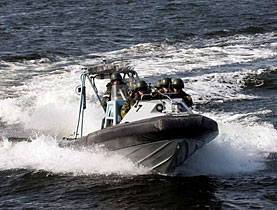
The Swiss military will not take part in a European Union-sponsored campaign to fight pirates off the coast of Somalia.
The House of Representatives on Thursday voted against participating in the Atalanta mission, with an anti-interventionist, left-right alliance defeating a centrist bloc by a count of 102-81 votes.
As a political matter, the anti-pirate force is now finished even though the Senate – the other parliamentary chamber – had come out in favour.
Defence Minister Ueli Maurer of the rightwing Swiss People’s Party called the decision “a missed opportunity”.
“It would have been a chance to do something for international solidarity,” he said after the vote.
Ironically, it was Maurer’s own party that sank the initiative. The People’s Party had earlier argued that the military was unprepared to respond to pirate attacks.
“We also support stopping this march forward and having a fundamental discussion about the form and context of military operations abroad,” said Ulrich Schlüer, a People’s Party parliamentarian.
The EU said it had taken note of the decision but did not issue further comment. It had earlier ruled out Switzerland providing a financial contribution.
“Bad signal”
Switzerland’s political left had demanded increased humanitarian commitments instead of a military force. It dovetailed with the right, which has historically been wary about the potential to compromise the country’s neutrality.
Schlüer said the proposal was “pointless and crude”. He has said he was open to intervention “but not in military uniform”.
Hans Widmer, a centre-left Social Democrat, said the rejection could send “a bad signal to the outside world”.
Proponents of the mission, which included the centre-right, had argued that the country’s image was at stake among other points.
“If Switzerland does not participate, we will risk worsening our already-battered credibility and image as a nation committed to solidarity,” said Peter Malama of the Radical Party.
Defence Minister Maurer had also warned that Europe would have difficulty understanding Switzerland turning down the mission, which includes vessels and aircraft from eight countries.
The mandate of the Swiss soldiers and experts would have been limited to protecting vessels of the United Nations World Food Programme and Swiss cargo ships crossing the Gulf of Aden, according to the foreign ministry.
The foreign ministry framed it as part of the country’s humanitarian obligations.
A Swiss force of around two dozen would have included elite troops, legal experts and a medical team, as well as senior officers, at a cost of nearly SFr10 million ($9.8 million).
Switzerland’s government had previously discussed participation in the operation several times without taking a decision.
Debate
In June, the EU extended the Atalanta mission through the end of 2010. One Swiss vessel was pursued by pirates off the coast of Somalia in December but there was no attack.
The centre-right Radicals and the Christian Democrats argued several months later that the Atalanta mandate was clear and Swiss elite soldiers were trained for missions abroad.
Most centre-left Social Democrats responded with cautious approval.
The People’s Party on the other hand accused the government of undermining Swiss neutrality.
The Campaign for an Independent and Neutral Switzerland said the Swiss move would have been a “serious mistake”.
swissinfo.ch and agencies
The waters off the Somali coast are the most dangerous in the world, accounting for a third of the world’s pirate attacks. The pirates run sophisticated operations using equipment such as satellite phones and GPS. They are also armed with rocket-propelled grenades and AK-47s.
The pirates are known to receive tip-offs from contacts at ports in the Gulf of Aden. They use speedboats with very powerful outboard motors to approach their targets. The pirates have also on occasion fired at the ships to scare them into stopping, so it is easier for them to board the vessel.
The pirates then sail the hijacked ship to the Somali town, Eyl, a pirate hub. There, pirates board the ship and normally take the hostages to shore, where they are usually well looked after until a ransom is paid.
Despite being landlocked, Switzerland has one of the most modern merchant fleets in the world, comprising 35 privately operated tankers and container ships that fly the Swiss flag in international waters.
In March 2008 the Swiss parliament approved a five-year, SFr500 million support package for the country’s merchant navy operators. Parliament had already accepted a ten-year funding mechanism totalling SFr600 million in 2002.
Officially based in Basel’s Rhine port, the navy was set up to ensure that goods would still enter Switzerland in the event of a crisis.
In 2002 Swiss sailors accounted for about 3% of all sailors worldwide.
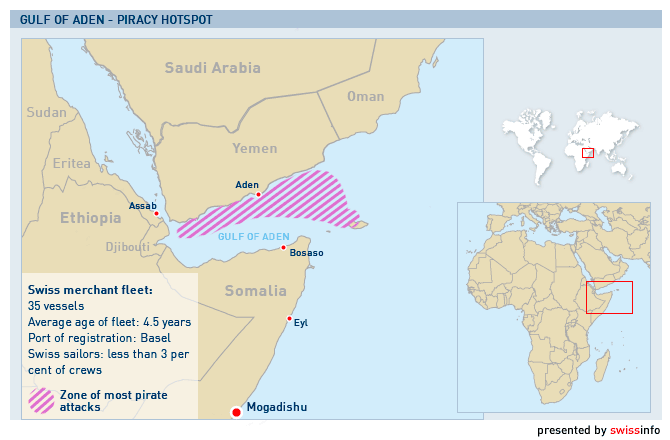

In compliance with the JTI standards
More: SWI swissinfo.ch certified by the Journalism Trust Initiative
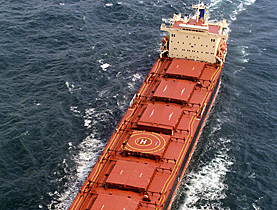
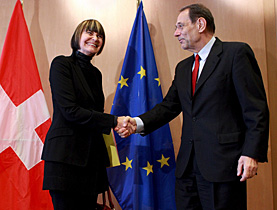
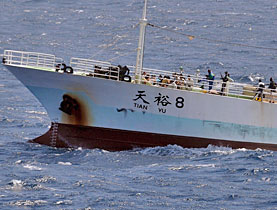

You can find an overview of ongoing debates with our journalists here. Please join us!
If you want to start a conversation about a topic raised in this article or want to report factual errors, email us at english@swissinfo.ch.